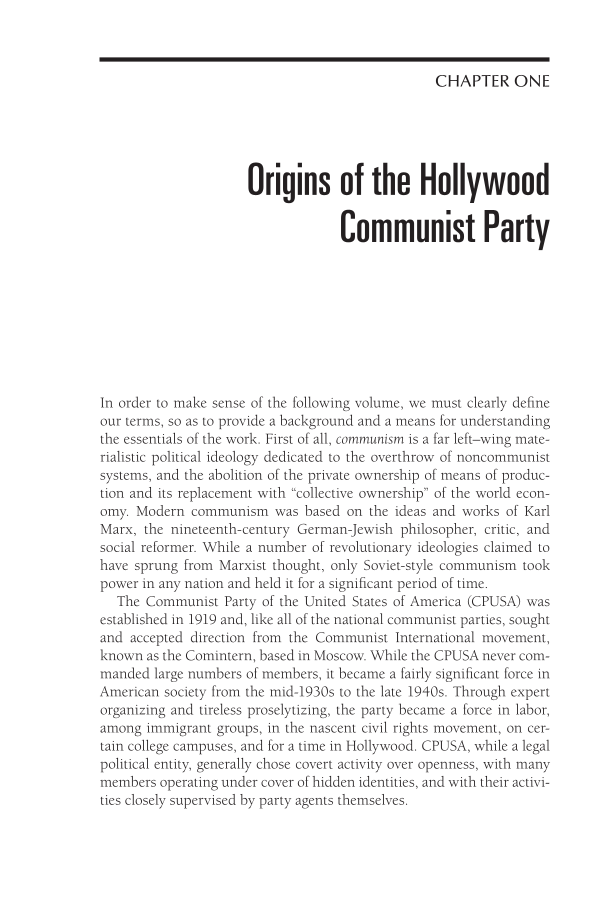chapter one Origins of the Hollywood Communist Party In order to make sense of the following volume, we must clearly define our terms, so as to provide a background and a means for understanding the essentials of the work. First of all, communism is a far left–wing mate- rialistic political ideology dedicated to the overthrow of noncommunist systems, and the abolition of the private ownership of means of produc- tion and its replacement with “collective ownership” of the world econ- omy. Modern communism was based on the ideas and works of Karl Marx, the nineteenth-century German-Jewish philosopher, critic, and social reformer. While a number of revolutionary ideologies claimed to have sprung from Marxist thought, only Soviet-style communism took power in any nation and held it for a significant period of time. The Communist Party of the United States of America (CPUSA) was established in 1919 and, like all of the national communist parties, sought and accepted direction from the Communist International movement, known as the Comintern, based in Moscow. While the CPUSA never com - manded large numbers of members, it became a fairly significant force in American society from the mid-1930s to the late 1940s. Through expert organizing and tireless proselytizing, the party became a force in labor, among immigrant groups, in the nascent civil rights movement, on cer- tain college campuses, and for a time in Hollywood. CPUSA, while a legal political entity, generally chose covert activity over openness, with many members operating under cover of hidden identities, and with their activi- ties closely supervised by party agents themselves.
Document Details My Account Print multiple pages
Print
You have printed 0 times in the last 24 hours.
Your print count will reset on at .
You may print 0 more time(s) before then.
You may print a maximum of 0 pages at a time.












































































































































